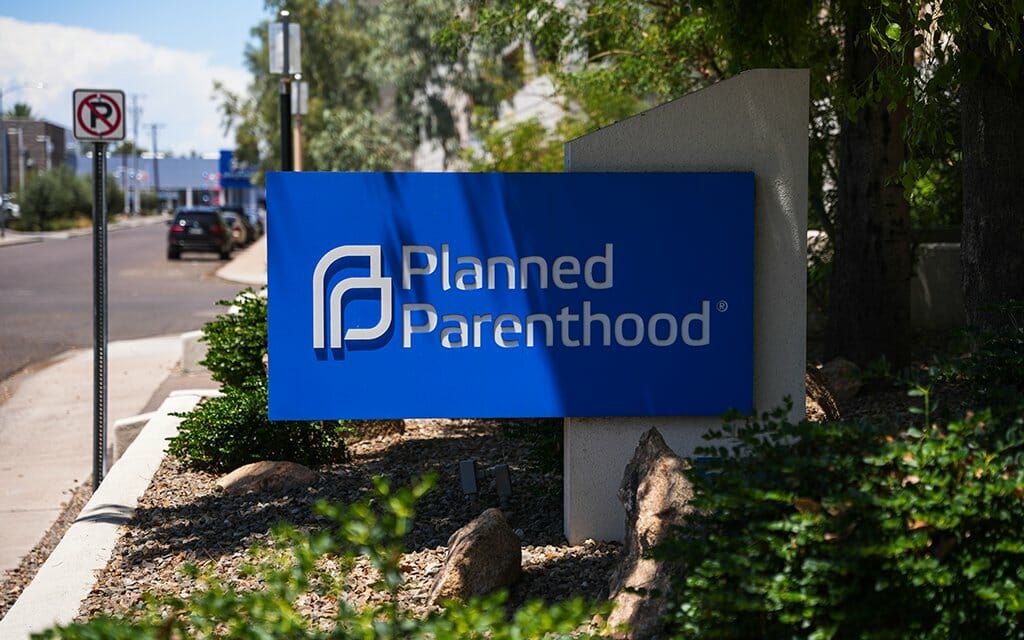Clinics in Arizona have largely resumed offering abortions after a court last week blocked a ruling that briefly outlawed the procedure, but providers said they are taking abortion’s future in the state day by day.
The on-again, off-again availability of abortions was put back on again last week when the Arizona Court of Appeals halted a Pima County judge’s near-total ban on the procedure, putting the lower court’s ruling on hold until at least Nov. 17. That cleared the way for a 2022 law that allows abortions up to 15 weeks of pregnancy.
“While the fight isn’t over, for now, Arizonans will once again be able to make their own decisions about their bodies, health care decisions and futures,” said an Oct. 7 statement from Alexis McGill Johnson, president and CEO of Planned Parenthood.
Neither side believes the fight is over, with opponents saying they are confident the Pima County ruling will ultimately be upheld.
“The Pima County judge’s ruling … was reasoned and sound and I am confident it will stand in the end,” Center for Arizona Policy President Cathi Herrod said in an emailed statement Thursday.
READ ALSO: 50% more likely to boycott a brand based on politics than year ago
READ ALSO: Discussing politics at work: Tips to manage hot topics
In the meantime, at least six abortion care providers in the state have rushed in to resume services in the latest five-week opening granted by the appellate court. Calls to Planned Parenthood Arizona, Acacia Women’s Center, Choices Women’s Center, Camelback Family Planning, Desert Star Family Planning and Family Planning Associates Medical Group confirmed that they have resumed offering abortions since the appellate court’s order.
“Today, we provided abortion care after two weeks of it being illegal in Arizona,” said a tweet Wednesday from Desert Star Family Planning. “Exhale, inhale…day by day.”
It’s the latest twist in a saga that began this summer when the U.S. Supreme Court reversed its landmark 1973 Roe v. Wade decision that recognized the right to an abortion. The court said in Dobbs v. Jackson Women’s Health that Roe was “egregiously wrong” and that state lawmakers should set abortion laws.
Under Roe, a Pima County judge in 1973 had enjoined a territorial-era law that banned abortions in virtually all cases. With Roe gone, Arizona Attorney General Mark Brnovich went to court in August to have the 1973 injunction lifted, and Pima Superior Court Judge Kellie Johnson agreed on Sept. 23.
That appeared to block the law allowing abortions to 15 weeks, which was approved this year by the Legislature and set to take effect on Sept. 24. Even though some officials – including Gov. Doug Ducey – claimed the 15-week limit was in effect, abortion providers took no chances and stopped offering abortions.
The upheaval of state and federal abortion law has led to 100 days of “pure chaos and confusion” for Arizona prosecutors, physicians and patients, said Brittany Fonteno, the president and CEO of Planned Parenthood Arizona.
“It has been traumatic for our physicians and staff who have been forced to notify patients that they can no longer care for them,” Fonteno said in an Oct. 7 statement.
Planned Parenthood, joined by Pima County Attorney Laura Conover, argued that Johnson’s ruling ignored 50 years of Arizona law that recognized abortion as a “legal medical procedure” and reinstituting that 1901 ban would lead to confusion for health care workers and prosecutors.
The abortion-rights supporters appealed Johnson’s ruling and a three-judge panel of the appellate court issued an emergency stay while it considers that appeal. The stay should be in place until at least Nov. 17, the deadline for briefs to be filed with the court in the case.
Herrod said there is no reason for the courts to “attempt to harmonize” the conflicting laws on the books, since the 1901 ban was explicitly preserved by lawmakers.
“With Roe now overturned, there is no reason the injunction should remain,” Herrod’s statement said.
But Planned Parenthood won’t back down without a fight.
“Planned Parenthood Arizona is committed to defending reproductive freedom for all and continuing this fight until this 150-year-old law is taken off the books for good,” Fonteno said on Oct. 7.




